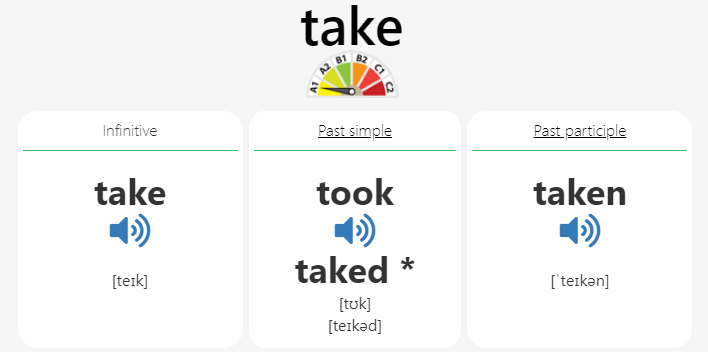In English grammar, the past participle is a verb form that is often used to create the past perfect tense or the passive voice. The past participle is formed by adding “-ed,” “-d,” or “-t” to the base form of the verb, depending on the spelling and pronunciation of the verb. The past participle is… Continue reading TAKE v3 form
TAKE v3 form
10/10 - (3 votes)





